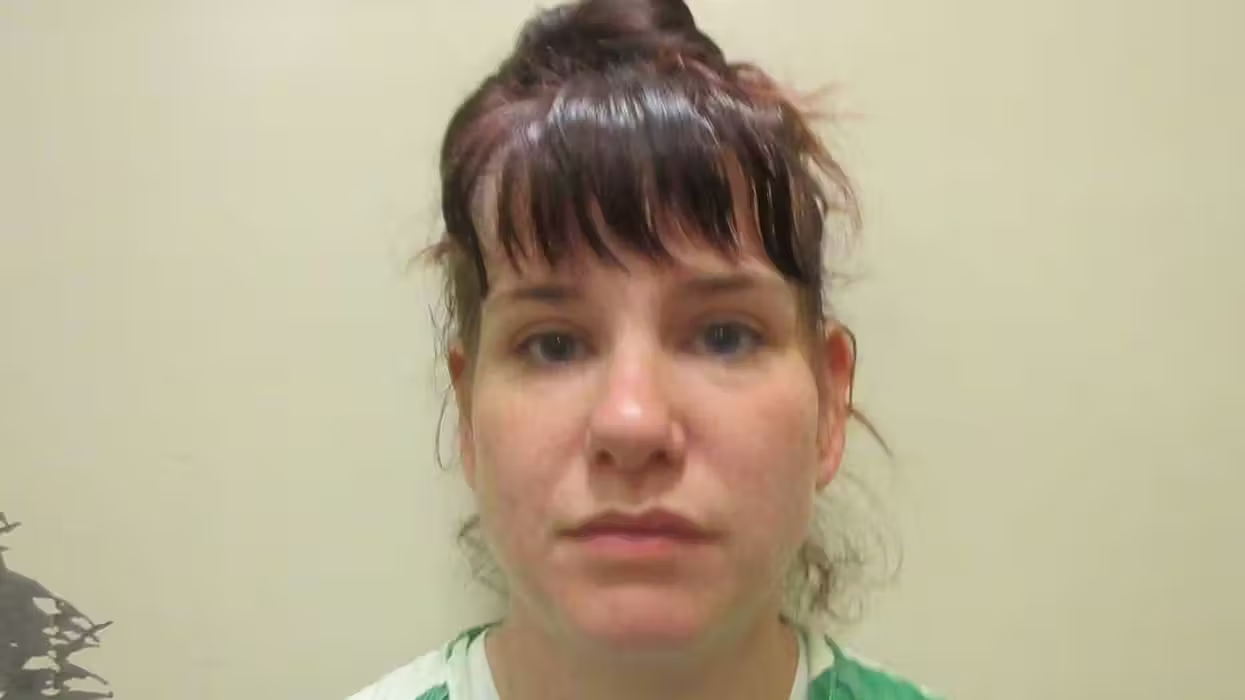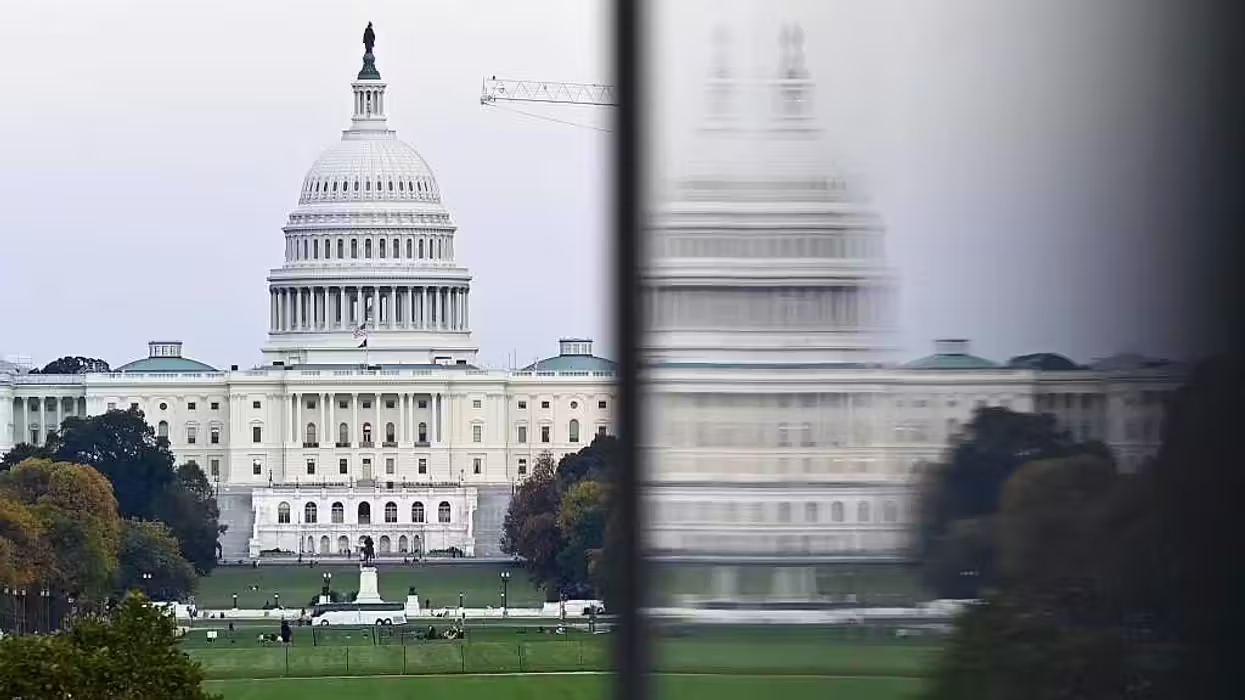
© 2025 Blaze Media LLC. All rights reserved.
FBI Never Talked to NYPD About the Tsarnaev Plot to Bomb Times Square? Here's What Was Said Today at the Boston Bombings Hearing
May 09, 2013
• Rep. Peter King: FBI never told NYPD about plot to bomb Times Square. • Sen. Lieberman: First time since 9/11 that a terrorist attack, homegrown or abroad, has successfully targeted U.S. civilians.• Rep. McCaul: Russia warned us about Tamerlan Tsarnaev.
[Scroll down for updates to this story]:
FINAL UPDATE 12:56 p.m. ET -- Rep. Peter King adjourns the hearing.
UPDATE 12:42 p.m. ET – Congressman Scott Perry (R-Pa.) just asked Lieberman why U.S. lawmakers and law enforcement officials shy away from using the term "radical Islam" when discussing terrorism.
Simply put, Lieberman said it made no sense to him and noted that this has been a problem for years.
Quoting a friend, the former senator added: "Obviously, most Muslims are not terrorists. But the sad fact is today that most terrorists that we’re dealing with in America are inspired by this violent, Islamic, extremist ideology."
UPDATE 12:34 p.m. ET – And yet another congressman (Ron Barber [D-Ariz.]) wants to know: How has sequestration impacted the government’s ability to respond to tragedies like the one in Boston?
Same answer from Lieberman: Huge cuts could hurt, but that’s not really the case here.
UPDATE 12:19 p.m. ET – Rep. King takes the gavel and turns the floor over to Rep. Eric Swalwell (D-Calif.)
The Tsarnaev brothers, according to Swalwell, show that we face threats from “lone radicalized wolves.” He continued, arguing that sequester could hurt homeland security funding, which may threaten all of us in the future.
UPDATE 12:11 p.m. ET – Rep. Richard Hudson (R-N.C.) to Davis: Do you have proper mechanisms in place to get information you need through all systems?
Davis responded by saying he believes the proper mechanism are in place -- but hinted that they're not exactly working as planned.
UPDATE 12:06 p.m. ET – The hearing has now resumed and Representative Steven Horsford (D-Nev.) wants to know whether budget cutbacks would have hindered Boston’s ability to respond to the attacks.
No, really, another budget question.
Davis, for the third time now, reiterated that cutbacks would've hindered Boston's effort -- but he added that this was not a problem for the state.
UPDATE 11:03 a.m. ET – The committee is now in recess. The hearing will recommence later this afternoon.
UPDATE 11:00 a.m. ET – Rep. Jeff Duncan (R-S.C.) just called on “the mainstream media” to apologize to Rep. Peter King for “vilifying” his efforts to investigate radical Islam.
As the Tsarnaev brothers clearly show, Rep. Duncan explained, radical Islam is a very real threat.
UPDATE 10:49 a.m. ET – Between Davis, Lieberman, and Southers, it sounds likes law enforcement officials and the intelligence community are unsure of how to prevent terrorists from using the Internet to collaborate, recruit, and radicalize.
UPDATE 10:19 a.m. ET – Davis just revealed to Congressman Peter King (R-N.Y.) that Massachusetts officials were not aware until three days after the bombings that Tameralan Tsarnaev had been flagged by the intelligence community.
Rep. King is also extremely upset that the FBI never talked to the New York Police Department about the Tsarnaev brothers’ alleged plan to bomb New York's Times Square.
UPDATE 10:13 a.m. ET – Rep. Bennie Thompson (D-Miss.) asks Boston Police Commissioner Ed Davis whether the city would have been able to respond as efficiently if it had less in its budget. How would budget cuts affect the city's ability to respond?
UPDATE 10:00 a.m. ET – Erroll Southers, University of Southern California Homeland Security and Public Policy Professor, says it's most likely that the Tsarnaev brothers were homegrown radical extremists.
Southers adds that there are three things necessary for a person to become a radicalized terrorist:
- Alienated individual
- Legitimizing ideology
- An enabling environment
We will never be completely free of a terrorist threat, he adds. Every step toward greater security is met with an attempt to exploit its weakness.
UPDATE 9:40 a.m. ET – Boston Police Commissioner Edward Davis: The cooperation of the people of Boston following the attacks was remarkable.
People are alive today because of the assistance Homeland Security provided us.
UPDATE 9:35 a.m. ET – Former U.S. Sen. Lieberman: Since 9/11 , we have experienced homegrown terrorist attacks on U.S. soil (he cites Major Nidal Hasan), but there have been no known attacks launched from abroad. Still unclear whether the Tsarnaev brothers had foreign aid.
Lieberman notes that the Boston Bombing is the first time since 9/11 that a terrorist attack, homegrown or abroad, has successfully targeted U.S. civilians.
The former senator concludes by citing the failure of the Tsarnaev brothers' friends, families, and community to alert authorities to the the suspicious activity.
UPDATE 9:19 a.m. ET -- Rep. Bennie Thompson (D-Miss.): The attacks show us that we cannot allow more budget cuts to law enforcement agencies.
UPDATE 8:56 a.m. ET -- Rep. McCaul: We know Russia warned the Federal Bureau of Investigation about the oldest of the suspected bombers, Tamerlan Tsarnaev, who was gunned down by law enforcement days after the attacks.
“He was on our radar screen. And then he was off,” the Texas congressman said.
--
The U.S. House Homeland Security Committee is holding a hearing today on the Boston Marathon terrorist attacks.
The hearing, which was announced last week by Congressman Michael McCaul (R-Texas), will include testimony from Boston Police Commissioner Edward Davis, former U.S. Senator Joseph I. Lieberman, and Massachusetts Undersecretary for Homeland Security Director Kurt Schwartz.
“Two weeks ago, our country was attacked by radical Islamist terrorists. Four lives were lost and hundreds of others were forever changed. As our nation recovers, it is imperative that we understand what happened, what signs may have been missed and what we can improve,” Rep. McCaul said in a prepared statement.
“The Committee is currently examining the events leading up to the attack on our homeland, the genesis of this plot and the reaction by law enforcement. Next week's hearing will provide an opportunity to hear from those who were on the front lines of the response effort and who were present through the attack and its aftermath,” the statement adds.
The statement continues:
This will be the first in a series of hearings, as part of a broader investigation into the Boston Marathon bombings. The investigation will look at how law enforcement addressed the area after the attack; how federal, state and local officials communicated with their counterparts at other agencies regarding the suspects before and following the event; and the challenges associated with securing our country since 9/11.Ultimately the investigation will assess how our efforts have evolved to meet the dynamic terrorist threat of foreign-inspired attacks on our soil, and what changes may be necessary to protect the homeland.
--
Follow Becket Adams (@BecketAdams) on Twitter
Featured image courtesy Susan Walsh. This post has been updated.
Want to leave a tip?
We answer to you. Help keep our content free of advertisers and big tech censorship by leaving a tip today.
Want to join the conversation?
Already a subscriber?
more stories
Sign up for the Blaze newsletter
By signing up, you agree to our Privacy Policy and Terms of Use, and agree to receive content that may sometimes include advertisements. You may opt out at any time.
Related Content
© 2025 Blaze Media LLC. All rights reserved.
Get the stories that matter most delivered directly to your inbox.
By signing up, you agree to our Privacy Policy and Terms of Use, and agree to receive content that may sometimes include advertisements. You may opt out at any time.





